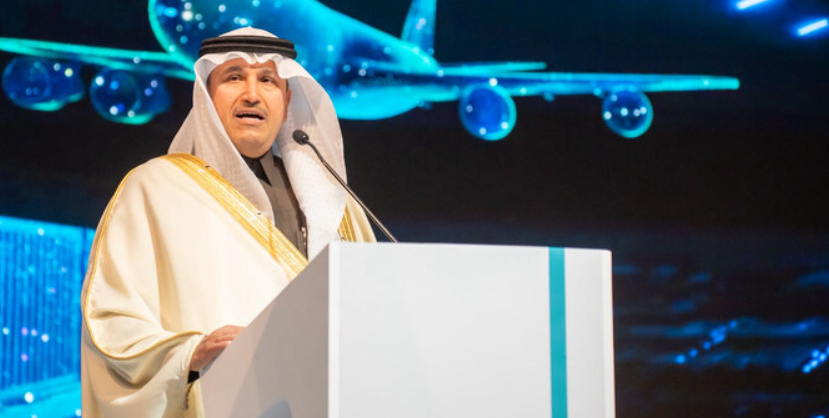
16 Dec 2024
RIYADH: Saudi Arabia is strengthening its logistics infrastructure by developing 18 new logistics zones, with total investments exceeding SR10 billion ($2.66 billion), according to senior officials.
This move is part of the country’s broader strategy to attract local and global investments. During the opening ceremony of the sixth edition of the Supply Chain Conference in Riyadh, Saleh Al-Jasser, minister of transport and logistics, announced that the Kingdom plans to increase the number of logistics zones from 22 to 59 by 2030.
“The Kingdom has successfully strengthened its logistical capabilities to support the national economy. This progress has attracted leading global companies to invest in the logistics sector,” Al-Jasser said.
He further stated: “Both local and international private sectors have committed to establishing several logistics zones, with contracts signed for the creation of 18 logistics zones in ports, totaling investments exceeding SR10 billion.”
Al-Jasser also highlighted the Kingdom’s rising position in the global container handling rankings. According to the UNCTAD report for 2024, Saudi Arabia gained an additional 231 points in the Liner Shipping Connectivity Index and added 30 new maritime shipping lines, underscoring the Kingdom’s key role in global trade.
“Saudi Arabia has played an active role in enhancing the efficiency of global supply chains and establishing the foundations necessary to ensure the smooth flow of goods and commodities across the region,” Al-Jasser said.
He added: “This has been achieved by leveraging the Kingdom’s strong and growing logistical capabilities, which include an advanced network of regional and international airports, a robust series of highly efficient ports, and modern railway and road networks. These assets accelerate shipping, handling, and export activities, linking the Kingdom to global markets.”
Al-Jasser emphasized the ongoing efforts to enhance the Kingdom’s position as a global logistics hub. He highlighted that the integration of various transport modes—such as ports, airports, and railways—into a unified and efficient system will boost competitiveness and facilitate seamless trade flows.
“The Kingdom will continue to enhance its logistical capabilities to facilitate exports, support supply chains, and improve its performance in global logistics indicators,” Al-Jasser said. He further emphasized: “The focus will remain on bolstering maritime shipping routes, expanding air freight operations, increasing rail freight capacities, and activating logistics centers to support sustainable development, further cementing the Kingdom's role as a global logistics hub and a vital link in international supply chains.”
Al-Jasser also underlined the importance of supply chains in Saudi Arabia’s broader economic strategy, noting their fundamental role in achieving the sustainability and integration goals set out in the National Transport and Logistics Strategy and Vision 2030.
“We consider them a fundamental pillar for achieving the sustainability and integration we aspire to, in line with the National Transport and Logistics Strategy and the Kingdom’s Vision 2030,” he said.
After his speech, Al-Jasser told Arab News that the growing interest from global multinational companies in Saudi Arabia’s logistics sector is a testament to the Kingdom’s strategic location and commitment to becoming a global logistics hub.
“This will not only create jobs for Saudis and make it more efficient for Saudi companies to operate, but will also enable various sectors across Saudi Arabia,” Al-Jasser said.
He added: “This comes as part of the implementation of the National Transport and Logistics Strategy, which stems from Vision 2030 that is inspired and steered by his royal highness the crown prince.”